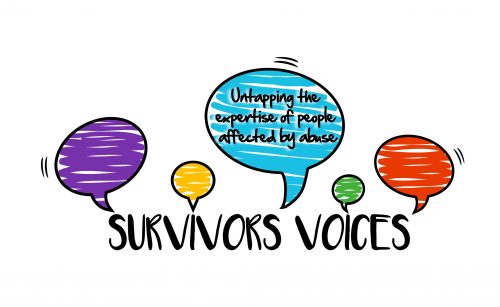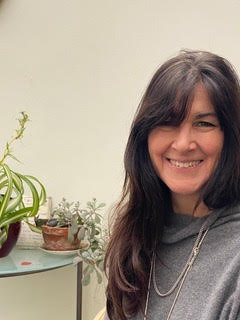By Susanna Alyce: Survivor of CSA.
Childhoods shape the adults we become. Traumatic experiences re-shape the people we are. When we are, as children, sexually abused (CSA) how could that not shape us? When we are subjected to Sexual Violence (SV) it traumatises us and leaves us with a tsunami of traumatic distress, fear, dread, disgust, shame and all the rest.
As survivors, we know this . We reach out for help. And all too often the people who are meant to care for us retraumatise us with their judgements, rejections, refusals and lack of resources and insufficient training.
Jo Lomani and a number of other survivors have a vision for how this might change. They have written a report calling for a new pathway for Survivors of CSA and SV to gain treatment. I highly recommend all Survivors take a look because it can help us all see what we need to be asking for and give us the courage to reject what currently harms us.
If you are a survivor, I can’t invite you warmly enough to read at this report: it is written by other survivors and you may find it helpful, empathetic and encouraging to see yourself and your needs so warmly supported in its pages.
Jo is herself a Survivor, both of sexual violence and of the psychiatric system. She has written this new report in collaboration with other survivors. It is addressed to the people who decide what help can be offered to CSA Survivors: the Commissioners and service managers within the NHS and Social Care systems. She offers a way that services need to be changed to offer help that actually helps.
This fully researched, and referenced document gathers information from Experts by Experience and peer reviewed published research to lay out what we need. It demands a pathway specifically for survivors of CSA and SV capable of healing the trauma of sexual abuse. This report explains and illustrates how the personality disorder diagnoses is currently used to portray trauma, distress and coping mechanisms to be a faultline or a failing in survivor in morality and personality.
In recent years there has been an abundance of new evidence about Trauma Informed Care, and Trauma Specific Services which do help. These approaches recognise trauma distress, triggering and coping mechanisms as integral to survival. Survival is a testimony to the bravery we mustered to be here today, still living, in the face of such abhorrent abuse. Our responses are not a sign of pathology or of a defective personality or identity. The report highlights the harmful use of behaviourist theories for those of us who have experienced CSA.
The proposed pathway would engage clinicians and survivors around personal histories of “what happened” to bring the survivor searching for help: full disclosure would not be needed but would be sensitively organised to allow enough to be said to start the journey.
The proposed pathway rejects the old approach of engaging around “what is wrong with you”. Instead of starting with the narrowed focus on symptoms and behaviours it starts with listening to the survivor’s narratives and needs.
Fundamental to the new pathway is the rejection of diagnoses that have previously been used by Psy services, which locate traumatic distress in the mental health or personality of the patient. Diagnoses often used to categorise and thus allocate funds, and shape treatment programmes, include Borderline Personality Disorder, Emotionally Unstable Personality Disorder (EUPD), and others. These diagnoses say there is something wrong with us – when actually there is something very wrong with the way trauma has been being treated.
One route forward has come about because in July 2018, psychiatrist and other clinicians who use diagnosis to allocate funds for treatment, were given a new diagnostic category: Complex Post Traumatic Stress Disorder (CPTSD). Though it is limited, this way of seeing the survivors’ experiences honours our history as well as the distress. For many survivors, any diagnosis whatsoever is unwelcomed and harmful; but the report recognises that the current structure of funding of services could respond to this call more quickly by utilising things like the C-PTSD diagnosis.
The report explores C-PTSD, and many other important aspects: it states what needs to vanish from our care, what needs to change, and what new and innovative approaches need to be included in the new pathway.
Jo’s published document is subtitled “a social justice call”: this is such an important statement. This call for change is about more than Survivors and their clinicians. It is about the whole of society as well as a mandate for health and social care leaders. MeToo, Everyone’s Welcome and Women-Rise all shout out the need for a safer, fairer, and more respectful society. Society needs to both stop abuse and care for those whom it has failed by not preventing abuse.
If you possibly can please go further: I urge you to send the web link (see below) to your GP, and your GP Practice Manager. To your MP. To your local mental health service and NHS Trust. And anyone else for whom diagnosis dictates the way in which you get the support you need.
Society needs to change, and it will change faster if we shout louder and all together. As the report concludes: “As survivors, we have shared our experiences with you in this report in the hope that we will be listened to and that our needs will no longer be overlooked.”
If you are a survivor and would like help or support in playing a part, no matter how small, even just to forward this to you GP or psychiatrist, please contact Survivors Voices where you can join the Changemakers team and receive support in various ways. Survivors Voices also offer a weekly online support group; please ask to be put in touch with the Survivors’ Pod if you feel in need of support.
Together we can make change happen.
Download the Report from HERE.


